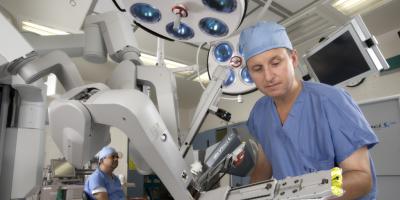No more narcissism: The official diagnosis fades, but narcissists will still believe the world revolves around them

Ronald Pies MD
Q: Isn‘t it curious that the Diagnostic Statistical Manual, DSM, which classifies mental disorders according to symptoms, is removing narcissism as a diagnosis at a time when narcissism is flourishing through venues like Facebook and Twitter?
A: “Many of us in the mental health field worry that all this online self-exposure may be worsening the trend toward increasing narcissism in our society.
“Studies of college students suggest that narcissistic traits have increased over the past few decades, though this may have an upside: ‘positive‘ traits like self-esteem and assertiveness may also be increasing in this population. And, for some users of Facebook or Twitter, there may be social benefits that outweigh any worsening of narcissistic traits, but this needs more study.
“The framers of the DSM don't pay much attention to social trends, such as the use of Facebook or Twitter. They tend to focus on whether the studies behind an existing or proposed diagnosis are convincing or not.
“Their conclusion was basically that the studies of narcissistic personality disorder have been severely flawed, and that the criteria are not reliable or valid. They do recognize, however, that people may have narcissistic traits.”
Q: What does the removal of the diagnosis code mean for narcissistic patients and their mental health providers?A: “I doubt the removal will have any effect on patients currently in treatment. Many are probably being seen by psychoanalytically oriented therapists who have never put much stock in the symptom-based DSM approach.
“However, in terms of billing and third-party payers, loss of the diagnostic code for NPD might have some negative effects on reimbursement for therapy.”
Q: What is so bad about narcissism? Is it just an annoying personality trait, or can it be detrimental?
A: “Up to a point, narcissism can be adaptive and even healthy.
“At one end of the continuum, we have folks who have a positive and confident attitude about themselves, and high, but not unrealistic, self-esteem. Without these traits, I doubt many people would advance in their careers or make many friends.
“On the far end of the continuum, though, we have patients who believe that the world revolves around them, and that everybody owes them ‘bows and curtsies.‘
“Deep down, however, we believe many of these extremely narcissistic persons are deeply insecure and often lonely individuals. They are certainly a handful for everybody else.
“Most people find extremely narcissistic individuals very hard to work with, socialize with, or relate to in an intimate and loving way. This leaves the narcissistic person feeling isolated and ignored, which often exacerbates his or her sense of anger and entitlement.”
Q: How do you "treat" narcissism?
A: “There are no validated ‘treatments‘ for what has been called NPD, unfortunately. There are no medications that have been shown effective, and, to my knowledge, there are very few if any controlled studies of psychotherapy.
“Nevertheless, some narcissistic patients seem to benefit from long-term psychotherapy, aimed at exploring the underlying issues that drive their need for praise, adulation, and constant self-involvement.”
Dr. Ronald Pies is a professor in psychiatry and behavioral sciences at Upstate Medical University. Reach him through Upstate Connect, at 315-464-8668.
You might(*) be a narcissist if:
--you are unhappy if you are not constantly the center of attention.
--people say you are demanding and unreasonable most of the time.
--you are constantly angry that people don‘t do things exactly as you say they should be done.
--you become depressed and angry when you feel rebuffed or rejected.
--you find it hard to open up and get close to anybody who isn‘t constantly praising your virtues.
(*) If you have most of these traits, ask yourself if they are interfering with your ability to function at work, home or in the community. Narcissistic traits do not necessarily point to a clinical condition or disorder.
Source: Dr. Ronald Pies

